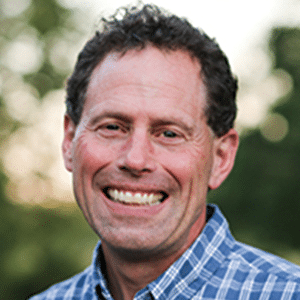From The CEO: Truth Be Told: The Union’s Role in Educating Effective Truth-Seekers
There was truth and there was untruth, and if you clung to the truth even against the whole world, you were not mad.” George Orwell, 1984
In my relationships and daily interactions I generally operate with the mindset that people are honest and truthful. I may question, but I usually accept the facts that people share with me, not to the degree of being gullible, but I certainly want to believe what they say. There are, however, times in conversations that a red flag surfaces for me, when I feel like I’m not getting a completely honest answer. I think ‘something is not making sense here’ or maybe there is more to the story than is being shared. I used to affiliate this ‘sixth sense’ with growing up in New Jersey, where many of us were taught to see through the “BS.” It probably has more to do with my tenure (read: age), that I’ve been around the block. The other thing, though, is that there has been an increase in recent years of national leaders not being truthful with the rest of us. In fact, the 2021 Edelman Trust Barometer reveals that there is low trust in government leaders, with 62% of people thinking government leaders purposefully try to mislead by saying things they know are false or grossly exaggerated. It is certainly worth considering how we navigate a world of mixed truth, and how we advise our students who may be even more apt to accept the ‘truths’ that are shared with them.
Truth, according to what better source than Wikipedia, is to be in accord with fact or reality. In everyday language, truth is typically ascribed to things that aim to represent reality or otherwise correspond to it, such as beliefs, propositions, and declarative sentences. Truth is usually held to be the opposite of falsehood. Alternative facts, a phrase first used by Kellyanne Conway to defend false claims about the attendance numbers of Donald Trump’s inauguration, are not truth. It is bothersome to see alternative facts being accepted on face value as true, and even more disturbing when they are accepted even after being proven false. That may be a reflection of people wanting to hear positions that support their personal viewpoint. If the science tells us that human behavior is accelerating climate change, then creating a false narrative to discount science provides an easy solution to not wanting to change behavior.
In his recent memoir President Barack Obama suggests that divergent media outlets contributed to the truth problem. “The splintering of the media and emergence of conservative outlets meant voters were no longer reliant on Walter Cronkite to tell them what was true; instead, they could hew to sources that reinforced, rather than challenged, their political preferences,” he writes. Recognizing this problem, we must emphasize the importance for students to do their own research on issues that are important to them, and to encourage them to be open to expanding their personal perspective. Both can be a challenge due to what Obama references: Our instinctive behavior to reinforce, rather than challenge, our own beliefs and values, many of which were developed over a lifetime.
But getting to the truth requires students to go beyond automatically accepting what they see on their social media feeds. It is our role to challenge them to not passively accept information because it matches what they want to hear, but to seek out the truth no matter the conflict or discomfort with personal values. Critical thinking, which is a cognitive skill I believe all college students should develop, means making reasoned judgments based on accurate, credible, and unbiased information. While our personal values and experiences shape our world view, critical thinking involves gaining perspective from many different points of view. In a world that lacks an abundance of truth telling, we need students who can ask good questions, objectively examine evidence, and consider their own assumptions and biases. We need students who can use critical thinking techniques to ascertain the truth.
In his book on critical thinking, Barry Beyer suggests that “to live successfully in a democracy, people must be able to think critically in order to make sound decisions about personal and civic affairs.” This aligns with the role of the college union statement that denotes educating students in leadership and social responsibility and offering first-hand experiences in global citizenship. It may be unrealistic to expect the truth, the whole truth, and nothing but the truth. However, it is realistic for us to help our students to be effective truth-seekers, seeing clearly through alternative facts or other misleading information.

